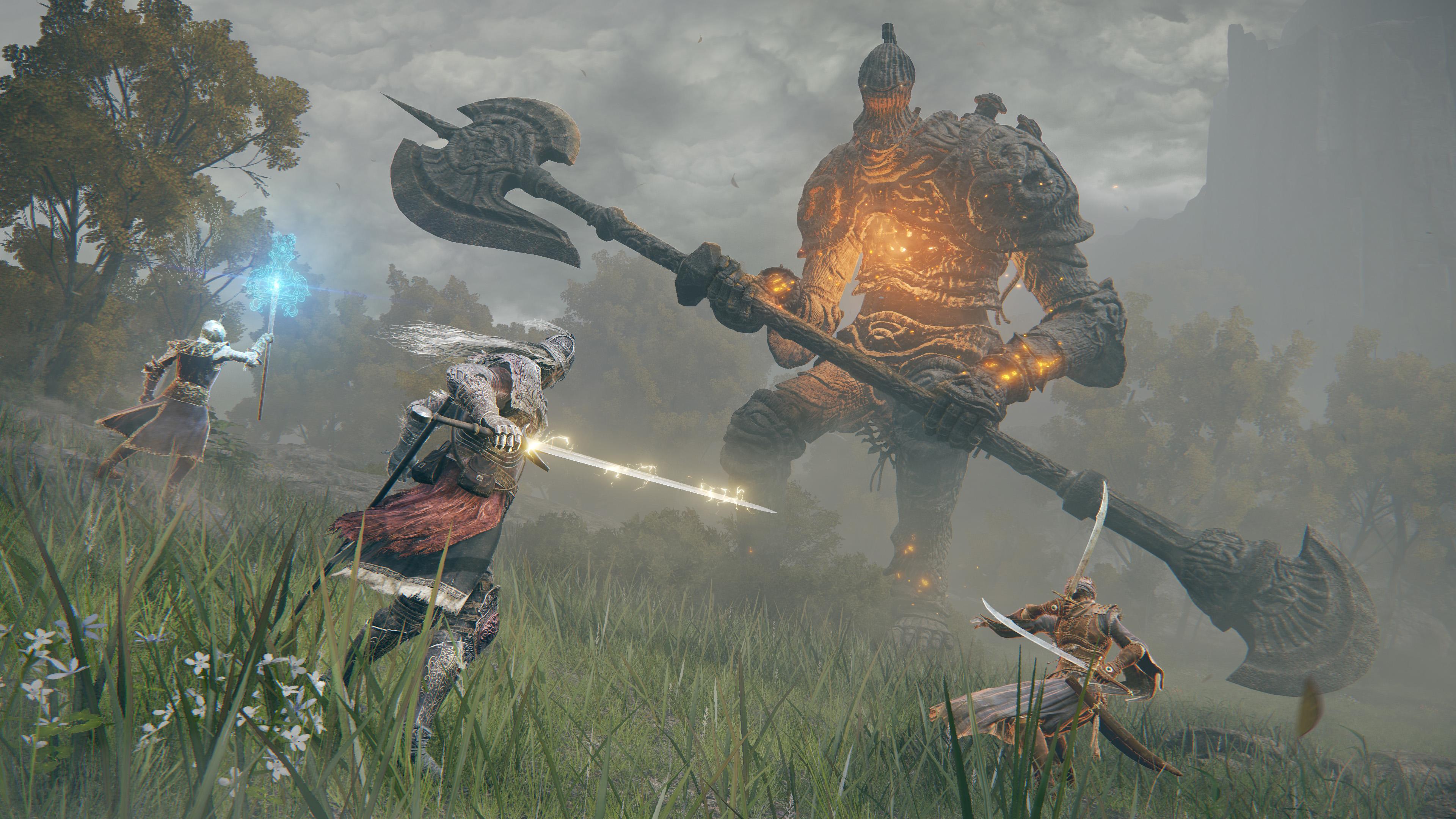Elden Ring system requirements could cause headaches for some PC gamers
Minimum spec needs 12GB of RAM, and there’s a big ask on the GPU front too

Elden Ring’s system requirements were briefly glimpsed at the weekend, as you may have seen, before being yanked down from Steam – but it turns out the spotted minimum spec was correct.
The official PC requirements have now been aired via the game’s Twitter account, so we now have the minimum and recommended specification. Let’s take a look at those full details first, before discussing the ramifications (or should that be RAMifications, ahem).
Minimum requirements
- OS: Windows 10, Windows 11
- CPU: Intel Core i5-8400 or AMD Ryzen 3 3300X
- RAM: 12GB
- GPU: Nvidia GeForce GTX 1060 (3GB) or AMD Radeon RX 580 (4GB)
- Drive Space: 60GB
Recommended requirements
- OS: Windows 10, Windows 11
- CPU: Intel Core i7-8700K or AMD Ryzen 5 3600X
- RAM: 16GB
- GPU: Nvidia GeForce GTX 1070 (8GB) or AMD RX Vega 56 (8GB)
- Drive Space: 60GB
The first point to note is the rather unusual requirement for 12GB of system RAM, and remember, that’s a minimum. In other words, if you have less than 12GB of memory, and there are still a number of folks in that boat who may only have 8GB, then you can forget about playing Elden Ring at all.
For recommended, you’re looking at 16GB of RAM, but that’s no surprise at all.
The graphics card minimum requirement may leave some PC gamers out in the cold, as well, given that you can’t have less than a GTX 1060, and again, that’s not a threshold everyone will hit.
Sign up for breaking news, reviews, opinion, top tech deals, and more.
The recommended spec for the graphics card calls for a GTX 1070, which again doesn’t feel like such a big ask given that it’s one step up from minimal, and this is what’s required for obtaining robust performance levels.
Analysis: Possible RAM and GPU worries, but for how many gamers?
We already chewed this over to some extent at the weekend, of course, and a fair few gaming PCs – at least going by the Steam hardware survey, which is about as good a snapshot of the current gaming scene as you’re going to get – still use 8GB. In fact, a third of PCs have 8GB or less, according to the most recent Steam stats, so that’s a sizeable chunk of the gaming population out there.
Now, it’s true that 16GB has become the standard loadout for any new gaming rig, but we’re talking about older PCs here – not everyone can afford to upgrade regularly, particularly not given how expensive some components have become these days. And in particular a good number of aging laptops used for gaming will likely still run with 8GB (which won’t be upgradable, either, most likely).
While we’re beating the RAM drum, it’s also true that some games have stipulated 12GB – other hulking open world efforts like Red Dead Redemption 2 to pick an obvious example – but that amount of system memory was the recommended configuration for RDR 2, not the minimum.
As well as potential problems around system RAM, some gamers may also be worrying over that GPU requirement. A GTX 1060 is not a beefy graphics card by any means (neither is an RX 580), but again looking at Steam’s hardware survey, around 20% of gamers have a worse card than the 1060 (briefly checking the top set of cards). And of course, the near 10% who do own a GTX 1060 or RX 580 won’t have a great experience, you’d imagine, if their GPU is literally the lowest spec you can get away with for playing Elden Ring.
The RAM requirement will have more impact than the GPU, no doubt, but both could cause headaches for some lower-tier gaming rigs. What we can hope is that the developer is overestimating the spec somewhat; in other words, erring on the side of caution when laying it all out here. Because these system requirements are certainly a bit of a shock compared to previous FromSoftware outings on the PC, like Sekiro: Shadows Die Twice. We were expecting Elden Ring to be more demanding, of course, but not this much more taxing.
Darren is a freelancer writing news and features for TechRadar (and occasionally T3) across a broad range of computing topics including CPUs, GPUs, various other hardware, VPNs, antivirus and more. He has written about tech for the best part of three decades, and writes books in his spare time (his debut novel - 'I Know What You Did Last Supper' - was published by Hachette UK in 2013).